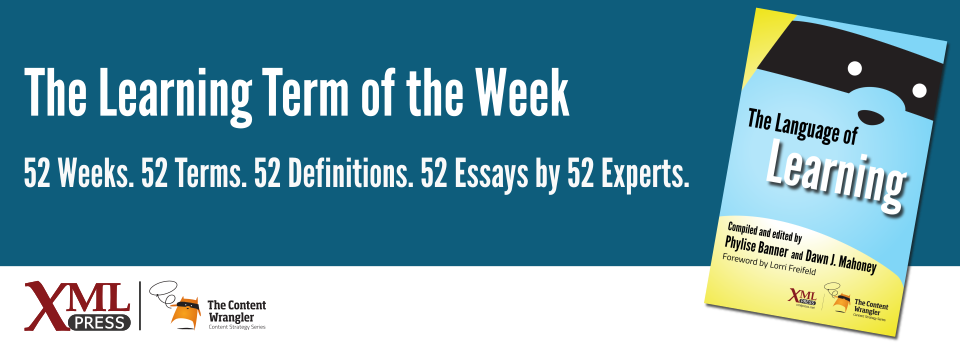What is it?
An assortment of methods and tools used to measure the acquisition of knowledge and skills one has acquired during a course of study.
Why is it important?
Assessments are one way to determine what someone has learned at a particular point during a course. For example, end-of-course or section testing can assess a learner’s progress, which can then be compared with expected outcomes. Results are not always meant to be final, but they can be guideposts to help learners know where they might need help.
Why does a business professional need to know this?
As the science of assessment changes, so does the definition of assessment and testing. Technology and the pace of information transfer are both critical factors that have an impact on the science and practice of assessment. Technology advances in performance support tools have given you a more granular view into the learning experience. In addition, data and learning analytics reveal factors about the performance of an individual that couldn’t be measured before.
Business professionals can take advantage of these advances to better understand how effective their training is. Of course, business professionals need to remember that assessments are only as good as the data from which they were created. The old maxim, garbage in garbage out, applies here.
Because assessments are often linked to ROI in corporate settings or funding initiatives in educational ones, they can be highly political. The elephant in the room is that testing or assessment data is often manipulated to show better results than actually exist.
Accepting this reality is a practical place to start any methodology related to assessment. What is essential to assessment is accurate data collection and honest reporting of the data and conclusions. If the data you collect is relevant to the learning outcomes, then the data will be accurate.
At the end of the day, the most important piece of assessment is data accuracy. What good does it do to record data if it is not accurate? You must begin by being very careful about what you measure, why you measure it, and what its relationship is to your learners’ performance.
References
- (Edutopia) Assessment: Edutopia. George Lucas Educational Foundation. Website that points to a group of web articles about assessment.
- (CTI) Measuring student learning: Center for Teaching Innovation. Cornell University.
- (Newey 2019) The Importance of Summative and Formative Assessments Within a Training Program: Newey, Marty. (2019). AllenComm blog.
- (Trumbull 2013) Understanding Formative Assessment: Insights from Learning Theory and Measurement Theory: Trumbull, Elise, and Andrea Lash. (2013). WestEd. PDF format.

